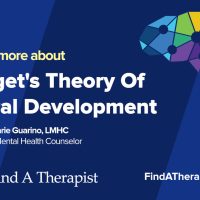What Is A Panic Attack?
Published on February 8th, 2024

Panic attacks are never a fun experience. They are uncomfortable and can cause your whole day to be interrupted. Having a panic attack can feel overwhelmingly helpless, but there are ways to learn how to overcome the experience of panic attacks. By learning about what a panic attack is and how to prepare for handling a panic attack, you can build confidence in your ability to overcome the experience and not allow it to consume you.
Panic attacks are a response to severe stress and anxiety. If you have ever had a panic attack, you may have noticed yourself feeling overwhelmingly helpless and distressed during the attack, and exhausted afterward. It is a common experience for those who have panic attacks. Luckily, learning coping skills can help you recover from a panic attack quickly.
A panic attack is an intense episode of fear or anxiety. It happens suddenly, and can sometimes seem like it came out of nowhere. Sometimes panic attacks can occur unexpectedly, and sometimes they are a reaction to feeling triggered or upset.
Sponsored by

Choose a therapist to work with and start healing with 20% off from BetterHelp.
Click HereWhile they are scary and can feel powerful in the moment, panic attacks are not typically dangerous or life-threatening. They are also treatable with proper care and awareness. Learning about what a panic attack is and how to manage the experience can help you have fewer panic attacks and learn how to manage them when they occur.
Causes and Risk Factors of a Panic Attack
Stress is the main risk factor for panic attacks. If you are dealing with too much stress in your life, then you may be at higher risk of experiencing a panic attack.
Some common life stressors that contribute to panic attacks include:
- Being overwhelmed with work or school
- Relationship issues
- Family issues
- Medical concerns
- Co-occurring anxiety disorders
- Social anxiety
- Post-traumatic stress disorder
- Co-occurring mood disorders
- Depression
- Co-occurring psychotic disorders
- Fear of having a panic attack
- History of abuse or trauma
- Grief or other emotional turmoil
You may also be at risk of having a panic attack if you are struggling with unresolved trauma or intense fear. Both of these can cause high anxiety, which makes you more at risk of having a panic attack.
What a Panic Attack may feel like
A panic attack is a scary experience, especially when you do not know that you are having a panic attack. While they are scary, they are common reactions to anxiety and stress. Common sensations you may feel when having a panic attack include:
- Racing thoughts
- Heavy, labored, or shallowed breathing
- Sweating
- Dizziness
- Muscle tension
- Chills or hot flashes
- Nausea or stomach pain
- Racing heartbeat
Some or all of these sensations may occur at once, and the experience can last anywhere between 5 and 15 minutes. After a panic attack, you may feel exhausted, depleted, or anxious.
Treatment for Panic Attacks
Panic attacks are uncomfortable and upsetting to go through, but they are treatable. A combination of lifestyle changes and cognitive therapy will help reduce panic attacks.
If you feel you are struggling with panic attacks, you may consult with your doctor or a mental health professional about the experiences. The following forms of therapy can help treat panic attacks:
Cognitive Behavioral Therapy (CBT)
The process of CBT works by identifying and changing the way you respond to your triggers. It teaches stress management skills and how to change your thought process to have a healthier reaction to anxiety and stress.
CBT also helps you learn new ways to behave in response to stress. Learning how to identify and respond to triggers before they become overwhelming is a powerful skill to use when learning how to prevent panic attacks.
CBT can help with:
- Relieving symptoms of anxiety disorders
- Treating social anxiety
- Reducing the frequency and intensity of panic attacks
Exposure Therapy
Exposure therapy is a gradual process of confronting triggers to make your stress reaction feel less intense. It helps with reducing the emotional reaction to unpleasant triggers by making them feel less threatening.
Talk Therapy
Talk therapy is useful in cases of panic attacks, phobias, abuse, and trauma. With talk therapy, you can speak with your therapist about the things you are afraid of or are upset about. This can help reduce the stress when confronted with a trigger.
Having a safe space to talk about your struggles will help you learn how to cope with life’s struggles. With talk therapy, you can identify the problem area(s) that may be causing panic attacks. Your therapist can help you build coping skills to address these issues so they cause you less stress Talk therapy provides you with time and space to better understand yourself and learn how to manage the parts of your life that cause you to feel scared or anxious. As a result, you may notice your panic attacks happen less often or go away.
Sponsored by

Find an affordable therapist online with 20% off from BetterHelp.
Click Here






Leave A Reply